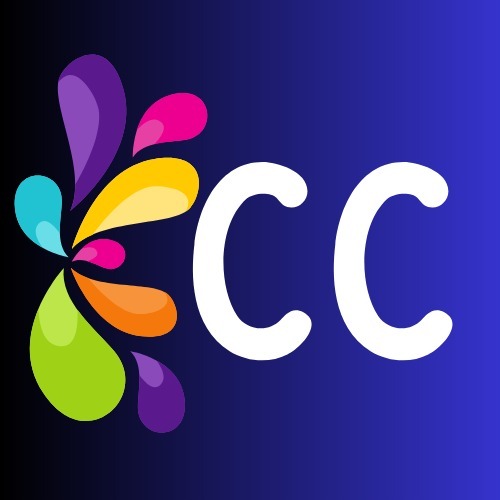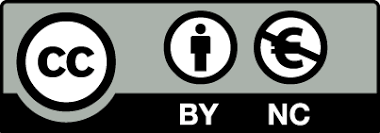Publishing Ethics and Malpractice Declaration

Creation and Criticism (CC) Publishing Ethics and Malpractice Declaration (ISSN: 2455-9687)
Editorial Independence and Integrity:
Creation and Criticism (CC) is devoted to upholding the highest standards of editorial independence and integrity. The editorial team ensures a peer review process that is fair, objective, and transparent, with editorial decisions based solely on the quality and relevance of the research.
Editing and Publishing Processes:
Creation and Criticism (CC) aims for transparency in all editorial and publishing procedures and is committed to publishing high-quality articles that contribute to the advancement of knowledge. The time from submission to acceptance is 20 days.
Creation and Criticism (CC) takes ethics violations seriously and may impose sanctions such as retraction of articles, banning authors from future submissions, or reporting misconduct to relevant authorities.
Thus, CC is committed to maintaining the highest standards of publication ethics and upholding the integrity and quality of its published research.
Commitment to Publication Ethics:
CC is committed to scholarly publishing ethics. The journal follows international quality standards and guidelines set by major academic bodies, including COPE (http://publicationethics.org/). All contributors to Creation and Criticism are expected to comply with these ethical norms.
Maintenance of Ethical Standards in Creation and Criticism:
Creation and Criticism is fully committed to best practices in handling ethical concerns, errors, and retractions. Preventing publication malpractice is a core responsibility of the editorial board. Plagiarism is not tolerated. Authors confirm the originality of their work upon submission and guarantee that the manuscript is neither published nor under review elsewhere.
Peer Review Process:
All articles undergo a Double-Blind Peer Review, ensuring anonymity for both authors and reviewers. Submissions are first assessed for relevance and standards. If unsuitable, they are rejected with a notification to the author. Otherwise, at least two reviewers are assigned. In cases of disagreement among reviewers, the Editor-in-Chief makes the final decision.
Authorship Guidelines:
All publications must accurately reflect authorship. The corresponding author is responsible for:
- Ensuring the work is original.
- Informing and securing approval from all co-authors.
- Properly acknowledging all contributors.
- Disclosing conflicts of interest.
Changes in Authorship:
Requests for changes in authorship must be addressed to the Chief Editor. The editorial board of Creation and Criticism retains final authority. All authors must agree on changes. If changes occur after publication, a public notice may be issued.
Denouncement of ‘Ghost,’ ‘Guest,’ or ‘Gift’ Authorship:
Creation and Criticism strongly opposes unethical authorship practices. Inclusion of names without significant contribution is considered misconduct and will be acted upon strictly.
Publication Process:
All individuals involved in publication—editors, reviewers, web managers—must adhere to global standards. Creation and Criticism upholds quality through rigorous practices and expects the same commitment from authors.
Plagiarism:
Plagiarism is a severe offense. Authors must ensure all sources are properly attributed. The journal is not liable for copyright violations and will not engage in related disputes.
Defamation or Promotion:
Any defamatory or promotional content is discouraged.
Gender, Racial, and Cultural Bias:
Creation and Criticism does not tolerate any form of discrimination. Manuscripts are evaluated solely on scholarly merit.
Steps Against Misconduct:
Actions in case of misconduct may include:
- Retraction with public notice.
- Republishing with clarification.
- Blacklisting the author.
- Informing affiliated institutions.
Publication Decisions:
The editorial team decides manuscript suitability based on reviewer feedback, journal scope, and ethical standards, while observing legal obligations.
Fair Play in Review Process:
All submissions are judged solely on merit, without bias based on personal characteristics or beliefs.
Confidentiality of Manuscripts:
Manuscripts are treated confidentially. Editors and reviewers are prohibited from using any unpublished material without the author’s permission.
Significant Errors in Published Works:
If errors are found post-publication, editors will work with authors to issue corrections or retractions. Errata may be published where necessary.
Handling Unethical Conduct:
Unethical conduct is addressed following COPE guidelines. The Complaint Handling Committee’s details are available at: http://creationandcriticism.com/complaint-handling-committee.html
Retraction Policy:
Creation and Criticism follows the COPE Retraction Guidelines.
Conflict of Interest:
All participants—authors, reviewers, editors—must avoid conflicts of interest. Policies are regularly updated to maintain transparency.
Authors:
Authors must disclose all potential conflicts of interest and financial support. The corresponding author is responsible for submitting a signed disclosure form.
Editors and Reviewers:
They must avoid conflicts and follow ethical standards. Any internal conflicts are addressed by the Editor-in-Chief. The editorial board functions independently of the publisher.
Disclosure and Conflicts of Interest:
Editors cannot use unpublished materials for personal research without permission. Any deviation from review norms must be justified.
Duties of Authors:
- Reporting Standards: Authors must report work truthfully and objectively.
- Data Access and Retention: Authors should retain supporting data for editorial review.
- Originality and Plagiarism: Work must be original, with appropriate citations.
- Avoiding Redundant Publications: Submissions must be exclusive to Creation and Criticism.
- Acknowledgment of Sources: Proper citations are mandatory.
- Disclosure of Conflicts: All conflicts must be disclosed.
- Correcting Errors: Authors must assist in correcting significant published errors.
- Primary Authorship: Authorship must reflect contributions accurately.
- Alterations in Authorship: Post-acceptance changes require consensus and editor approval.
Copyright:
Authors confirm originality and assume responsibility for permissions related to copyrighted material. The corresponding author asserts full authority on behalf of all co-authors.
Duties of Reviewers:
- Editorial Contribution: Reviewers aid editorial decisions and offer feedback.
- Promptness: Reviewers unable to review must inform the editor.
- Confidentiality: Manuscripts must be kept confidential.
- Objectivity: Reviews must be objective and evidence-based.
- Acknowledgment of Sources: Reviewers should highlight uncited relevant work.
- Conflict of Interest: Reviewers must not review where conflicts exist.
Duties of the Publisher:
It supports independent editorial decisions and works with editors to address misconduct, including fraud and plagiarism. It ensures long-term archiving, accessibility, and adherence to non-discrimination in publishing practices.
Important Note:
All necessary precautions are taken to avoid publishing unethical content. Allegations of misconduct are handled promptly, with corrections or retractions issued as needed.
Advertising Policy:
Creation and Criticism does not endorse or publish paid promotional content. Editorial independence is strictly maintained.
Revenue Sources:
Creation and Criticism is a self-financed open-access journal with no author fees. It is run by volunteers from academic institutions.
Direct Marketing Policy:
The journal does not engage in direct marketing practices. Submissions are received voluntarily, based on the journal’s reputation and rigorous peer review.


